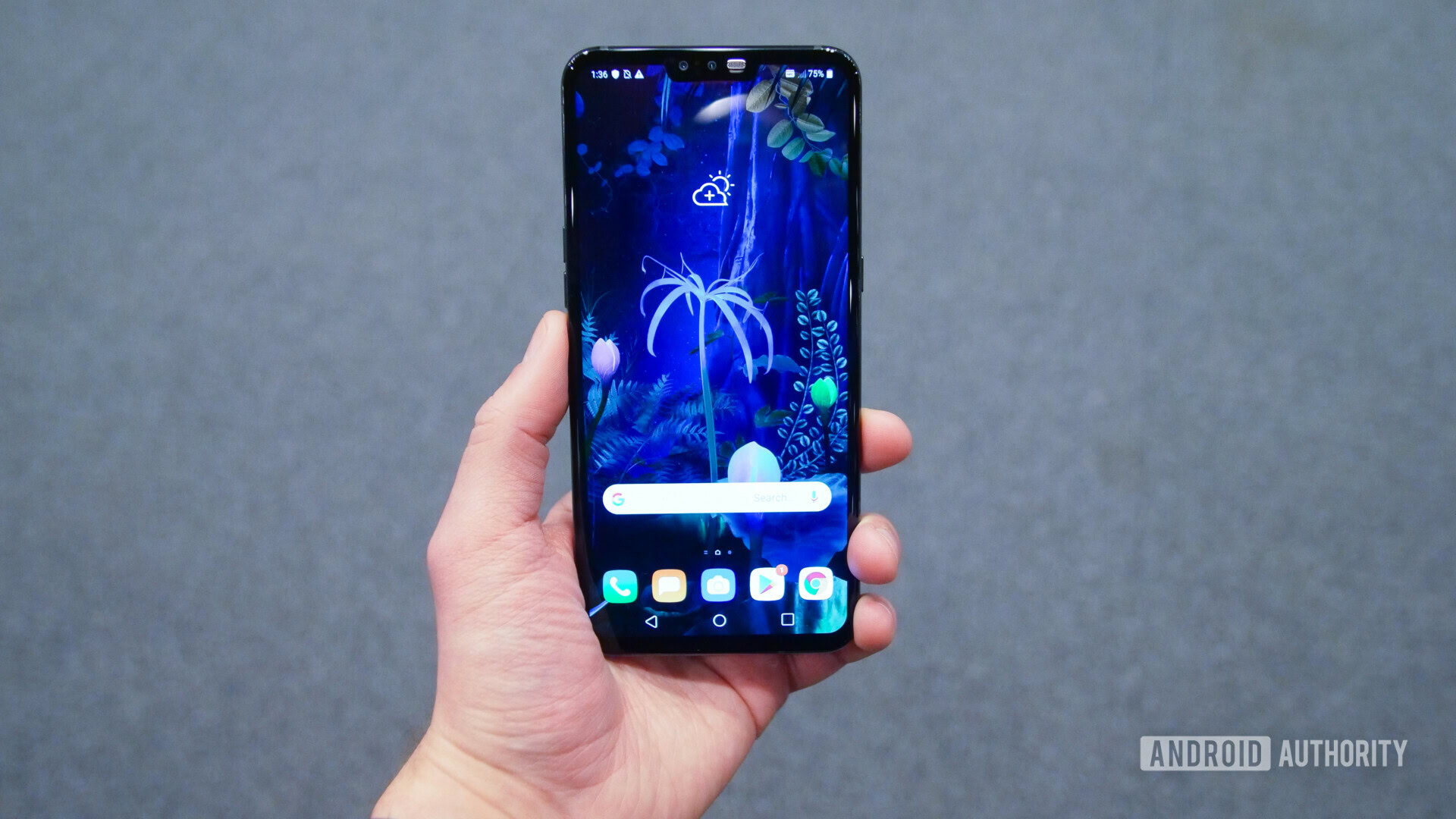Affiliate links on Android Authority may earn us a commission. Learn more.
LG V50 ThinQ 5G specs: 5G support and a 4,000mAh battery

5G is a major theme at MWC 2019 this year, and it’s no surprise LG wanted in on the action. Arriving only four months after the V40, LG has now officially unveiled the LG V50 ThinQ 5G.
While the next-gen cellular technology is obviously the star feature, let’s take a closer look at the LG V50 specs before we dive in further:
Full list of LG V50 ThinQ specifications
| LG V50 ThinQ | |
|---|---|
Display | 6.4-inch POLED FullVision 3,120 x 1,440 resolution 538ppi 19.5:9 aspect ratio |
SoC | Qualcomm Snapdragon 855 Mobile Platform with Snapdragon X50 5G Modem |
GPU | Adreno 640 |
RAM | 6GB |
Storage | 128GB MicroSD expansion up to 2TB |
Cameras | Rear cameras: 16MP super-wide lens (ƒ/1.9 aperture/ 1.0μm pixels/ 107 ̊ field-of-view) 12MP standard lens (ƒ/1.5 aperture/ 1.4μm pixels/ 78 ̊ field-of-view) 12MP telephoto lens (ƒ/2.4 aperture/ 1.0μm pixels/ 45 ̊ field-of-view) Front cameras: 8MP standard (ƒ1.9 aperture/ 1.12μm pixels/ 80 ̊ field-of-view) 5MP wide (ƒ2.2 aperture/ 1.12μm pixels/ 90 ̊ field-of-view) |
Audio | Quad DAC Stereo Boombox 3.5mm headphone jack |
Battery | 4,000mAh Qualcomm Quick Charge 3.0 |
Durability | IP68 MIL-STD 810G |
Biometrics | Face recognition Fingerprint sensor |
Network | 3G 4G LTE-A 5G |
Connectivity | Wi-Fi 802.11 a, b, g, n, ac Bluetooth 5.0 NFC USB Type-C (USB 3.1 compatible) |
Software | Android 9 Pie |
Dimensions and weight | 159.2 x 76.1 x 8.3mm 183g |
Colors | ASTRO Black |
While we don’t know the specifics of the bands used just yet, the LG V50 ThinQ is designed with next-gen 5G in mind and isn’t just using dressed up 4G LTE-A technology under the hood (ahem, AT&T). As for network support, LG specifically mentioned the phone will be targeted toward the U.S. and South Korea — though it’s certainly possible other markets could be added a later time.
The LG V50 sports the 7nm Qualcomm Snapdragon 855 processor and a fairly standard 6GB of RAM. Yes, Samsung offers up to 12GB of RAM in the S10 Plus but the reality is that 6GB of RAM is more than enough, even if it’s not quite as future proof.
The LG V50 sports a 12MP standard lens with an ƒ/1.5 aperture, paired with a 16MP super-wide lens with a 107° field-of-view, and a 12MP telephoto lens with a 45° field-of-view. Around front, the LG V40 specs include an 8MP sensor with a ƒ/1.9 aperture and an 80° field-of-view while the secondary lens features a 5MP sensor, ƒ/2.2 aperture, and has a 90° field-of-view.

The last hardware feature of note is the battery. As you’d expect, 5G puts extra strain on battery life and to compensate LG has upgraded from the V40’s 3,300mAh to 4,000mAh. LG says that 5G saps around 10 to 20 percent more battery than a standard cellular connection, but this bump should more than make up for it.
LG also a dual-screen accessory that works with the V50 ThinQ. Officially called the Dual Screen for LG V50 ThinQ 5G, the accessory features a 6.2-inch OLED FullVision display with a 2,160 x 1,080 resolution. You can learn more about the dual-screen accessory right here.
Overall, the LG V50 ThinQ 5G isn’t a big upgrade from the LG V40, and by all rights seems more like the “LG V40S” than a whole new phone. Considering the LG V40 hasn’t been on the market very long, we can’t say this is surprising.